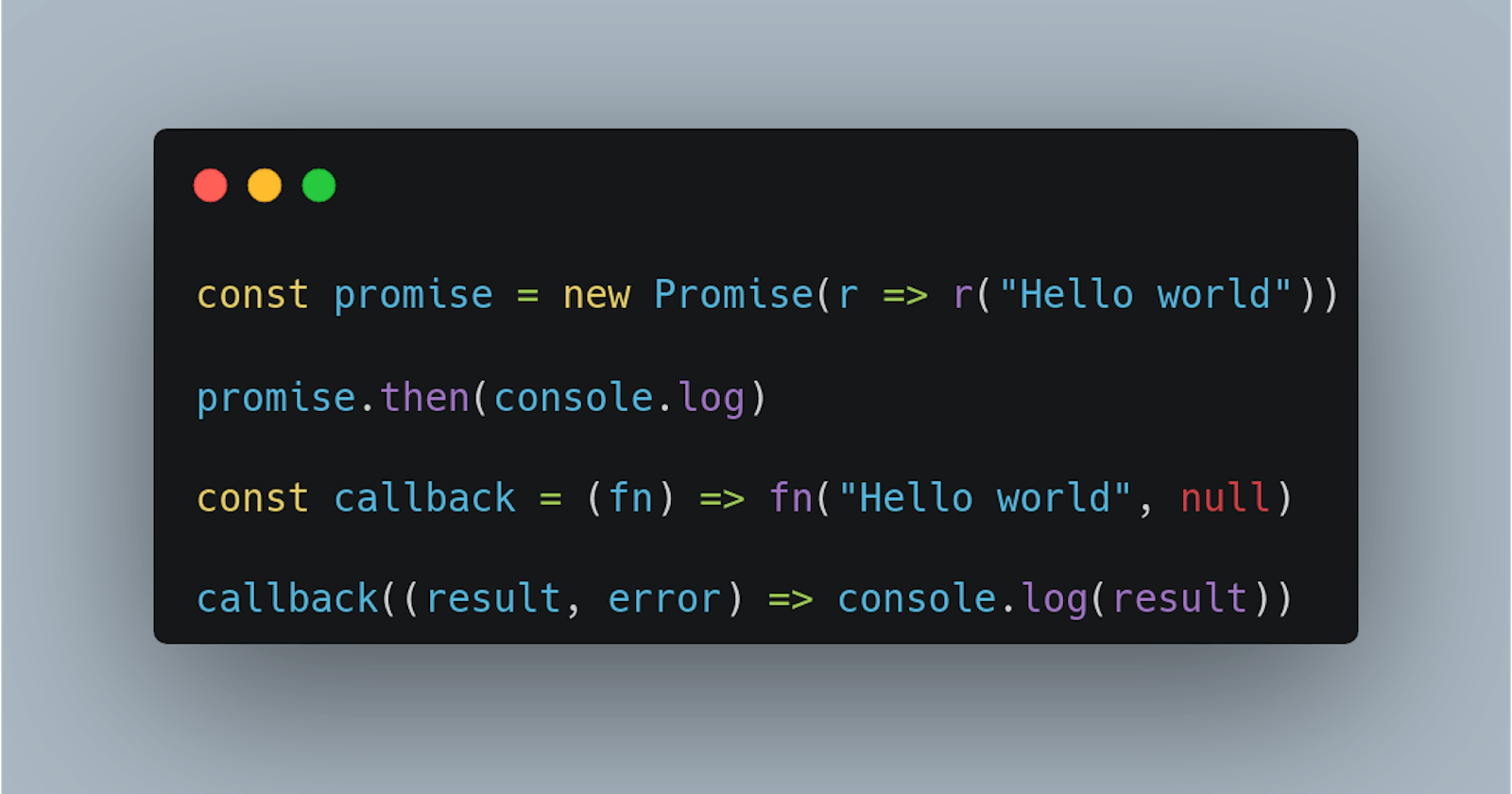Promises and callbacks are two important features of JavaScript that allow developers to handle asynchronous operations. In this blog post, we'll discuss the differences between promises and callbacks and when you should use one over the other.
Callbacks
Callbacks are a common feature of JavaScript, especially when working with asynchronous code. A callback is simply a function that is passed as an argument to another function and is called when the original function completes its task.
For example, let's say you have a function that loads data from a server. You could use a callback to handle the response:
function loadData(callback) {
fetch('https://example.com/data')
.then(response => response.json())
.then(data => callback(data))
.catch(error => console.error(error));
}
loadData(data => {
console.log('Data loaded:', data);
});
In this example, the loadData function accepts a callback function as an argument. When the data is loaded, the callback function is called with the data as its argument.
Promises
Promises are a newer feature of JavaScript and were introduced to address some of the issues with callbacks, such as callback hell (nested callbacks that become difficult to manage).
A promise is an object that represents a value that may not be available yet but will be in the future. Promises have three states: pending, fulfilled, and rejected. When a promise is fulfilled or rejected, it is said to be settled.
Here's an example of how to use a promise to load data:
function loadData() {
return fetch('https://example.com/data')
.then(response => response.json());
}
loadData()
.then(data => {
console.log('Data loaded:', data);
})
.catch(error => {
console.error(error);
});
In this example, the loadData function returns a promise. When the promise is fulfilled, the then method is called with the data as its argument. If the promise is rejected, the catch method is called with the error as its argument.
Promises vs Callbacks
Now that we've seen examples of both promises and callbacks, let's discuss when you might choose one over the other.
Promises are generally preferred over callbacks because they are easier to manage and result in cleaner code. Promises allow you to chain asynchronous operations and handle errors more easily. Promises also provide a more structured way to handle asynchronous code.
Callbacks, on the other hand, maybe more appropriate in certain situations, such as when working with older APIs or libraries that don't support promises.
In conclusion, both promises and callbacks are important features of JavaScript that allow developers to handle asynchronous operations. While promises are generally preferred over callbacks, there may be situations where callbacks are more appropriate. It's important to understand both concepts and use them appropriately in your code.

